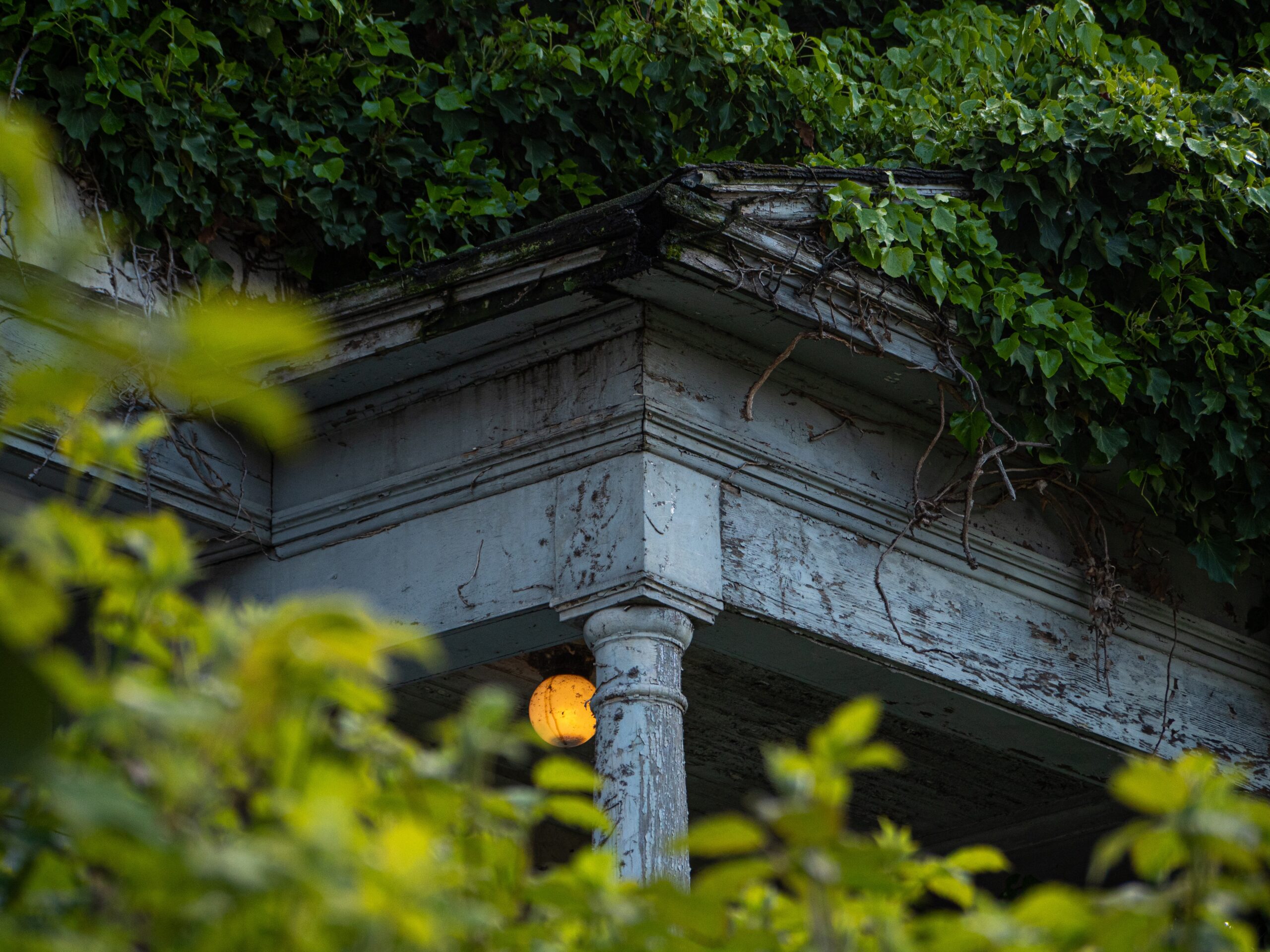When I was fifteen, my aunt bought me a yellow copy of Sylvia Plath’s poetry collection Ariel for Christmas. Later that night before bed, I scanned the table of contents and “The Manor Garden” caught my attention:
The fountains are dry and the roses over.
Incense of death. Your day approaches.
The pears fatten like little buddhas.
A blue mist is dragging the lake.
You move through the era of fishes,
The smug centuries of the pig-
Head, toe and finger
Come clear of the shadow. History
Nourishes these broken flutings,
These crowns of acanthus,
And the crow settles her garments.
You inherit white heather, a bee’s wing,
Two suicides, the family wolves,
Hours of blankness. Some hard stars
Already yellow the heavens.
The spider on its own string
Crosses the lake. The worms
Quit their usual habitations.
The small birds converge, converge
With their gifts to a difficult borning.
In high school, I was very into the arts. I took an IB art class, and for our final senior year, we had to curate a multi-media art show. One of my pieces was a three-dimensional bas-relief-style portrait of Plath. I filled the border with vines and figs, a fruit that serves as a heavy symbol in her novel The Bell Jar. I read anything I could find by her.
A few years later, I can’t say it’s held as close to my heart as it once was, but for a time in my life, it was my favorite poem. It describes the scene of a decaying garden on the grounds of a decrepit manor. There isn’t a specific story being told, but rather a general message being given; life is fleeting, and decay is inevitable. By using images from this garden, like dry fountains and wilted roses, Plath conveys her melancholic wonderings about existence. This wouldn’t be an uncommon topic for her to write about – a majority of her poems contain themes of life and death coupled with a saddened outlook.
Sylvia struggled with depression and suicidal ideation and eventually committed suicide at thirty years old. She locked her children in their nursery before their usual nanny visits. How would the thoughts of someone in that situation reflect in literature?
In “The Manor Garden,” there seems to be a ripening before the rot; “the pears fattened like little Buddhas”, yet “your day is approaching”. There is nourishment and inheritance, yet there is also blankness and death. For Plath, this poem may have represented her inner struggle of suicidal thoughts, contrasting with her love for her children. A poem in vagueness is great in how it can be a vessel for others to develop their own meaning. Perhaps the speaker is talking to their child – “You inherit white heather, a bee’s wing, Two suicides, the family wolves, Hours of blankness.” What is Plath going to pass on to her children? Her delicateness – white heather flower and wing of bee, familial suicide, or “wolves”, and discontent – hours of blankness. Is this the ripening before the rot? Love for a child paired with the worry of your ‘issues’ – the ‘difficult borning’? Have the birds coveted?
The majority of her work that I’ve read has always had this vague symbolism – you have to create the rest of the story and find your own meanings within the metaphor. She makes this easy, by providing plenty of natural imagery; lakes omitting blue mist, crows, insects, and botanicals. These images are living and flourishing while still surrounded by decay and death.
When it comes to the structure of the poem, it flows rather concisely. As I said earlier, there is a message being told rather than a steady story. In his essay, “Motive For Metaphor,” Zapruder proposed that metaphors are best equipped when the reader is enticed to think beyond the poem. As you read “The Manor Garden,” you are shown acanthus, bees, worms, and plenty of other natural symbols. Even amidst the ruins, there are small signs of life. Physically, each stanza contains only four lines, keeping it visually balanced. This pairs well with the poem’s content, the natural balance of life and death. Nature is predictable – this is a projection of Plath’s fear of her children inheriting her mental health struggles. Sylvia had written, and therefore thought, a lot about these things – they appeared equally throughout her life as well as the poem.
So, why does a depressing poem from sixty years ago still matter? I don’t think it has to, not to everyone at least. Not all writing is meant to resonate with all people, and no people will enjoy all writing. I don’t like action movies or cubism. My friend doesn’t like abstract minimalism or epics. Other people love these things! Creativity is one of the best human qualities – regardless of how it manifests itself in someone. Products of emotions often instill emotion within their audiences. “The Manor Garden” made me feel something at fifteen. The imagery felt haunting, the symbolism was meaningful, and I understood it. Yet, if you asked me today what my favorite poem is, I would have a different answer. As you age and consume more art, they influence you in different ways.

